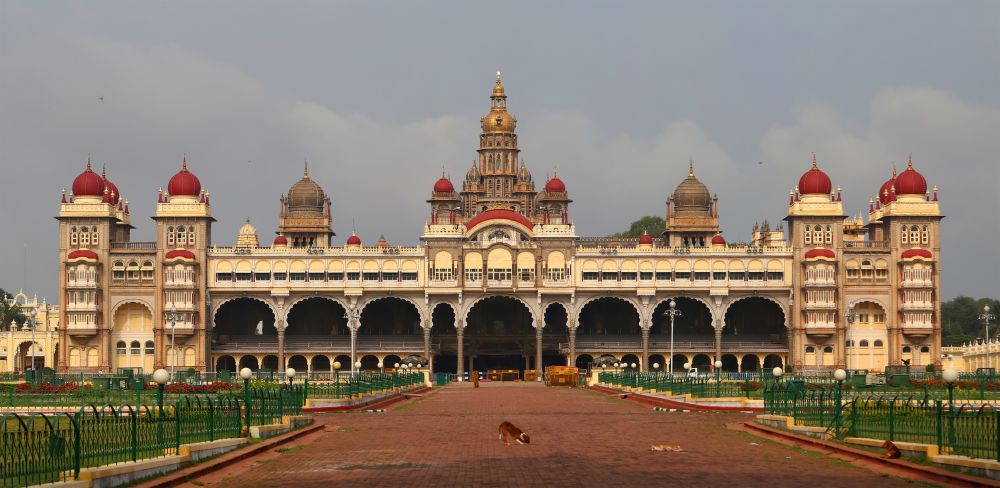

The Mysore Palace, also known as Ambavilas Palace, situated in the heart of Mysore city in Karnataka, India, is a historical edifice that's synonymous with the region's rich cultural and architectural heritage. The palace is the centerpiece of the city and a primary driving force in Mysuru's tourism.
Built in 1912, the Mysore Palace was the royal residence of the Wadiyar dynasty, who ruled the Kingdom of Mysore from 1399 to 1950. The construction of the current structure was commissioned after a fire burned down the old wooden palace during the wedding of Princess Jayalakshmanni. The British architect, Henry Irwin, designed the palace in an Indo-Saracenic style that blends Hindu, Mughal, Rajput, and Gothic elements, resulting in a breathtaking architectural marvel.
Since its establishment as a public entity, the Mysore Palace has been a crucial component in branding Mysuru as a tourist destination. Visitors are drawn to the palace's grandiose and intricate interiors, as well as the majestic and imposing facade which offers a glimpse into the regal splendor of bygone eras.
Tourists flock to the palace to experience its grandeur, especially during the annual Mysore Dasara festival, where it becomes the epicenter of celebrations with vibrant processions and cultural performances that showcase the city's historical importance. The palace's illumination on Sundays and public holidays, with nearly 100,000 bulbs, is a spectacle not to be missed.
Modern tourism trends at the Mysore Palace include interactive audio guides in multiple languages, catering to the growing number of international visitors. Enhanced visitor amenities and the digitization of ticketing have also been implemented to streamline the touring process.
Recognizing the importance of the palace in India's cultural and historical landscape, significant efforts have been made to maintain and restore the structure. These conservation projects ensure that the palace remains a prominent symbol of Mysuru's rich heritage.
Looking ahead, the palace is expected to remain a vital part of Mysuru's travel circuit. Authorities continue to invest in promotional activities and infrastructure development, ensuring that the palace retains its luster and popularity for generations to come.
The Mysore Palace stands as not just a testament to the region's grand past but also as a beacon for its future in tourism. As it seamlessly encapsulates the essence of Mysuru's history and cultural vibrancy, it remains one of the most visited and beloved tourist attractions in India.